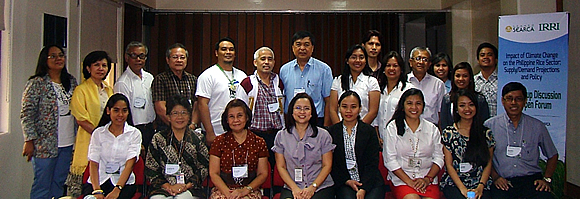The project, which is funded by the International Rice Research Institute (IRRI), aims to develop a modeling framework for assessing the effects and impacts of climate change and climate variability on rice production in the Philippines. More specifically, the project analyzed location-specific climate risks in relation to the rice production situation by province, and assessed the suite of climate change adaptation measures in rice production.
A total of 24 participants of various disciplines from the University of the Philippines Los Baños (UPLB), Philippine Rice Research Institute (PhilRice), Department of Agriculture-Bureau of Agricultural Research (DA-BAR), Philippines Statistics Authority (Bureau of Agricultural Statistics), and SEARCA joined the FGD.
The Project Team led by Dr. Felino Lansigan presented the indicative findings and highlights of the study. Dr. Lansigan explained that the effects and impacts of climate change on rice production can be evaluated using crop simulation under different plausible climate scenarios. The study revealed that most of the top rice-producing provinces in the Philippines are highly vulnerable to combined climate risks of increased temperature, more intense rainfall, and typhoons. Thus, climate risks management strategies and measures should be implemented or enhanced in these areas, especially the northern part of the country. Dr. Lansigan concluded his presentation by asserting that climate change adaptation has to be mainstreamed in the rice production system supply chain to manage climate risks, ensure crop production, and enhance food security. (Junette Dawn A. Baculfo)
